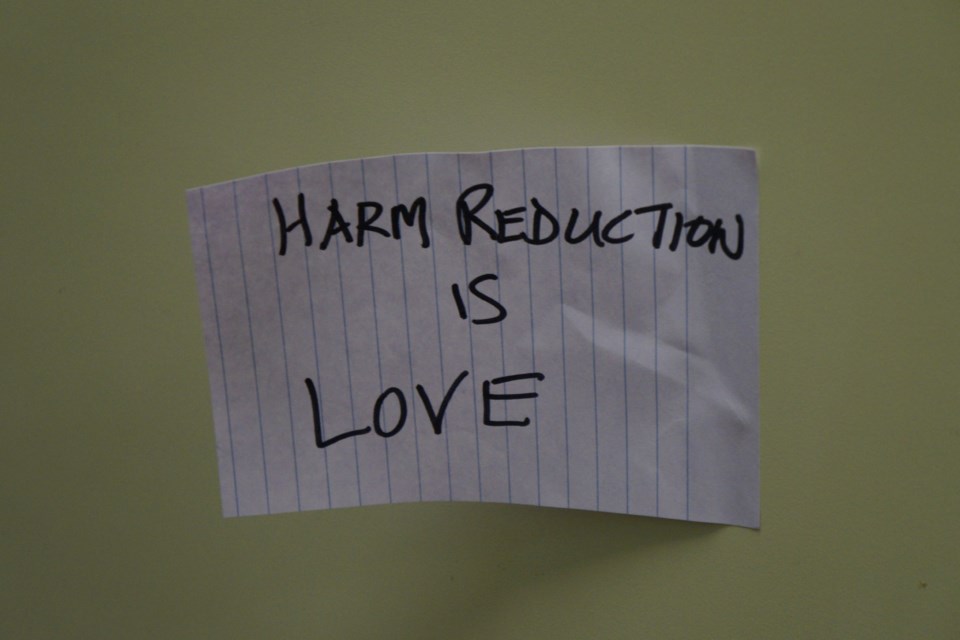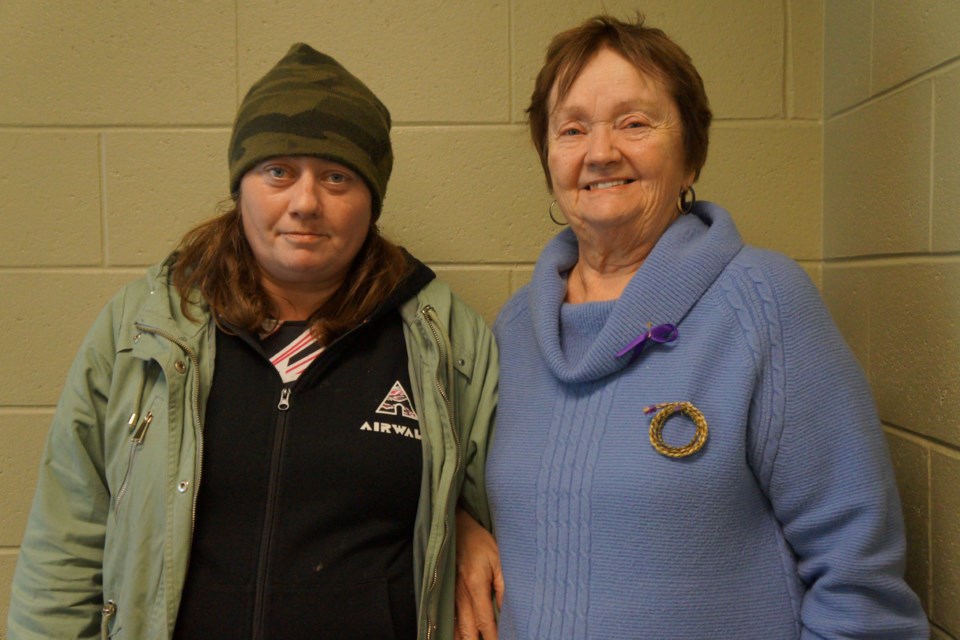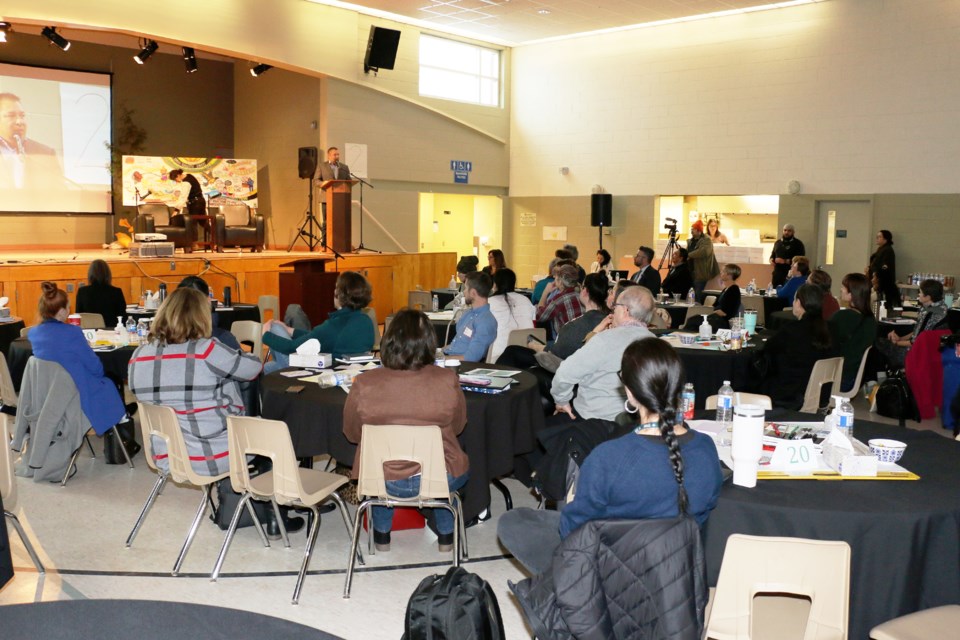Cautious optimism is the most common refrain from the social service and harm reduction agencies that attended the Greater Sudbury Summit on Toxic Drugs on Dec. 7-8, but many wonder why the summit didn’t result in an aggressive push to fund Sudbury’s supervised consumption site.
Organized jointly by Public Health Sudbury & Districts and the City of Greater Sudbury, Sudbury.com spoke with several people in the harm reduction and social service field who had hoped the summit could help to inform decision-makers in the city, and perhaps, result in actionable recommendations.
To that end, Kaela Pelland, director of peer engagement for Réseau ACCESS Network, told Sudbury.com, “A seed was planted.”
The summit was held in Azilda on Dec. 7-8, a chance, organizers said, to bring together the voices of those who work in addiction and harm reduction with the decision makers in government, including City of Greater Sudbury staff and council members.

Many attendees, including Karla Ghartey, hoped that it would result in funding for The Spot, Sudbury’s supervised consumption site, which will close if stable funding can’t be secured. Ghartey is a founding member of the Sudbury Temporary Overdose Prevention Society (STOPS), a professor of nursing at Cambrian College, who is also pursuing a doctorate in public health at the University of Toronto, focusing on substance use and harm reduction.
She told Sudbury.com that while she’s “happy that this summit brought more education and information to community leaders, there are those of us who know all of this already and are tired of talking and are ready for action,” she said. “We talk, they die.”
Sex Workers Advocacy Network Sudbury (SWANS) took to social media, stating in a post while at the summit that “it's hard to witness those who work for the institutions that have the power to save lives continue to give each other accolades while ignoring the harms that their ‘initiatives’ are causing in our very small community.”
The post went on to state, “We are all in the same room. We need to be talking about the failings and how to fix them. This has not been a safe space for many. SAVE.THE.SPOT.”
There was a diverse array of speakers at the event who spoke to some of the many complexities of the toxic drug crisis, including those with living experience.
One of those speakers was 42-year-old Anne, a peer engagement worker at Réseau ACCESS Network. She is also the daughter of mayoral candidate and former city councillor, Evelyn Dutrisac.

Anne spoke to her experiences as a substance user, and told Sudbury.com after the summit’s close that she was proud to educate those in attendance.
She told attendees about the death of her partner, who died from toxic poisoning.
Anne also spoke of the importance of “meeting people where they’re at,” a focus not on the end goal of sobriety, but about learning what goals a person who uses substances has for their life.
“A lot of times throughout my life, I’d have sobriety, I’d go to treatment, I’d stay sober for a while and then I’d go back out and use,” she said. “And obviously a parent wants their child to be sober, but it’s not always realistic,” said Anne, with her mother nodding in agreement.
Dutrisac told Sudbury.com she was honoured to stand with her daughter as she spoke, and learned a great deal from the summit speakers.
“We were both growing and learning, we're walking together,” said Dutrisac. “I'm so grateful to be here.”
A panelist at the Greater Sudbury Summit on Toxic Drugs, Dr. Michael Franklyn, who works in addiction medicine told Sudbury.com his first suggestion for change after participating at the summit is fairly blunt.
“We need to take the medical profession and the medical system off its pedestal and make it much more patient-centered,” he said. “Meet the patient where they're at, at that time.”
He said there is a concern in the medical profession about harm reduction, just not the right way.
“I think we practice too defensively. I think we worry more about the harm we might do, rather than appreciating the harm we will do by not meeting people where they’re at,” he said.
Franklyn serves as medical director of the Harm Reduction Home, a CMHA-S/M sponsored managed alcohol program for the homeless and is an associate professor of Family Medicine at NOSMU. He also sits as a member of the Ontario Physicians and Surgeons Discipline Tribunal at the College of Physicians and Surgeons of Ontario.
He told Sudbury.com he was most inspired by the stories of those with lived or living experience, as well as the Indigenous cultural teachings added to the summit.
Franklyn also noted the need to support those who are facing addiction without a support system.
“I think several people made the point that the opposite of addiction is not sobriety, it's connection,” he said. “People don't have connections to their family, their community and when you have a miserable existence, you're freezing cold, you've been traumatized as a child, really, all you want to do is take that away. And drugs are one of the most effective ways to do that.”
It’s about proving the social determinants of health, proper housing, health care and the like, but also, in his view, a focus on youth.
“If I was given a magic wand and an unlimited budget, I would work on what are called ACEs, ‘adverse childhood experiences’, and try to affect change,” he said.
In addition to hoping that attendees would understand the need to save The Spot, Sudbury’s supervised consumption site, Pelland said that perhaps the opportunity to see things from different lens’ could be a beneficial outcome.
“When you have to face people's pain, when you have to face people's experience, it's hard to hold your own opinion as fact, at the end of the day,” she told Sudbury.com. “I can look at the same data as someone else. But depending on the lens we have, we're seeing two very different things in the same data. So I think this created an opportunity for us.”
Pelland said she wants the “seeds planted” to result in systemic change.
“When one person sees something differently and shares it, it may only take that one person who works within that system to start that dialogue, and I'm hopeful that the people here are going to do that.”
And while there was a sense of optimism after the event, Sudbury.com spoke with Ward 6 Coun. René Lapierre, who chairs the board of health, said council's funding of the consumption site was temporary and based on securing funding from upper levels of government. Without that funding, he said it seems unlikely the city would continue to fund the The Spot.
Jenny Lamothe covers vulnerable and marginalized communities for Sudbury.com.
